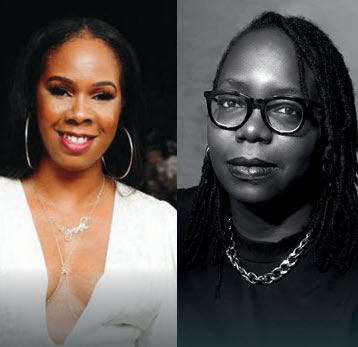Yetty Williams: Parenting in the 21st Century
Every day, there are new mothers – and fathers – in Lagos, Nigeria with little or no idea how to navigate the new phase nature has propelled them into. It’s a whole life journey from what meals to eat during the first trimester to what meals to pack in their teenager’s lunch box; parenthood never stops. To create a platform where this information can be accessible, Yetty Williams started a little blog 10 years ago that has grown into Nigeria’s premier parenting resource community. Mostly digital, they also have occasional empowerment programs, masterclasses, webinars, a radio show and an annual parenting conference, all in a bid to create a safe space and opportunities for parents to thrive. She talked more elaborately with DOWNTOWN’S Kehindé Fagbule on the venture LagosMums and all things parenting in Nigeria.
What is LagosMums and why was it established? LagosMums is a platform and a parenting community focused on mums, parents and caregivers raising children in the 21st century. It was established in 2011 when I, myself was a stay at home mom with a toddler and a baby. During this time, I had a lot of questions and I was resorting online to get answers to specific parenting needs or challenges. Shopping for everything that I was looking for, as a new parent, I was increasingly going online and that’s when I found there’s a huge gap for information that resonated with me, or that was relevant to me as a mother in Lagos, Nigeria. That is how the idea of LagosMums started primarily as a blog. Over the years, it’s evolved from just a blog to becoming a real community for parents, both locally in Lagos, Nigeria, but also globally as well.
What are the more common issues that mums come up with on the platform?
The platform has had a spectrum of different issues but for the earlier years, the choice of domestic staff is always a big question. Questions around the type of school to go to, questions around work-life balance are also very important in the early years. A lot of the questions we get as the children get older has to do a lot with technology; use of screen times; how much is too much, how much is too late to making sure that they put the rules in place so they’re able to monitor their children’s online behavior. The digital world isn’t going anywhere, so the truth is, we all need to learn how to be successful digital citizens in general.
What are the biggest misconceptions about motherhood?
I think one of the biggest misconceptions is that when a woman becomes a mother, everything else in life is no more important and that motherhood takes over. While it is true that being a mother is very all-encompassing, takes a lot of time and is very intense, it’s also really important that mothers don’t forget who they are as individuals and they take time to ensure that they take care of themselves. I’ll also say a misconception is that mothers never have time for themselves, they should sacrifice for everybody else and put themselves at the bottom of the priority list. It’s always about caring for their families and forgetting themselves and the reality is a woman who doesn’t take care of herself is not going to be able to give her best to her family. So it’s really important that women understand that self-care is not a luxury. It doesn’t mean that you don’t care about other people but rather, when you take care of yourself first and foremost, then you’re in a good place emotionally, physically, mentally so that you can then be the best parent and the best individual possible.
Mental health in parenthood. While it is a new and developing concept that women are now paying attention to in Nigeria today, where do the men factor in this conversation?
One of the biggest contributors to mental health challenges that I find with women in general, both from experience and some real-life situations that I encountered in my work with Lagos Mums is a sense of hopelessness, this sense of despair that some people feel because they feel they have to do everything themselves. I think it’s critical that you must get rid of the guilt that comes with this idea that you should be superhuman and you should do everything by yourself. You need to get comfortable with delegating and outsourcing. I believe that being a parent, an intentional parent, is not something you can outsource but there are many other things you can outsource that somebody else can do.
Chores like cleaning, cooking, laundry, shopping and going to the market, these are things you can outsource so that you can have more quality time with your family. Lagos life is very hectic, there’s traffic, there are issues to deal with, quality time with your children is something that you want to prioritize as much as possible. Where the men come in is that spouses need to understand this and need to see parenting as something that’s both people’s job. It is the job of the father, and the mother, they’re supposed to co-parent. It’s not one person’s responsibility. So it’s really important that the men, our sons that we’re raising, realize that family is important, and everybody has a part to play.
I believe the more we’re having conversations around what a healthy, wholesome family looks like, the more we would have more people getting involved like we’ve already seen from my very first session. We started having annual parenting conferences about eight years ago and the very first ones we had, maybe we had two or three dads. Now we have many more dads who are showing up, joining parents in sessions, signing up for the masterclasses that we hold, because they know that they want to be much more hands-on and involved parents.
Do you have guides/tips for new mums (or mums with kids) during this pandemic era?
Yes, the pandemic has commonly shaken things up for everybody and I think it’s important to realize that we’ve all been affected as parents, adults, children and a lot has changed. Research shows that it takes sixty-six days to learn new habits, so the truth is, everybody has picked up new habits over almost the last year. As things start to get back to normal, children are returning to school physically, parents themselves are going back to work. We all need to just be kind to ourselves, we need to take time to get used to how things used to be, we have to continue to take all the precautions necessary. So make sure you’re washing your hands regularly, you’re wearing your mask when you go out. If your child is unwell, please keep them home, don’t send them to school. It’s also really important that we look at our mental health. Everybody needs to get out, get some sunlight, get some movement and exercise, we must be doing everything that benefits us mentally, physically, emotionally because they all work together. For parents who still have children at home, perhaps online learning, parents must have a structure and have a plan around the day.
So if you’re a working parent, for example, and you have your spouse, you have young children who need you to sit with them to attend online school, you might (as much as is possible) want to try and have more flexible working hours. Maybe one parent is on morning duty, the other parent is on afternoon duty, or you try talking to your boss at work. This is a time to speak up and to think about alternative ways of doing things differently than we’ve been used to. For example, we’ve all found that we can be productive right from our homes if one wants to be. As challenging as this period has been, it will pass and we just have to do what we can do, as best as we can and whatever is not a priority (in my opinion), my advice is to leave it for now. You can get to that somewhere down the line when the time comes.
For more information and years worth of research, articles, content, resources, downloads on everything when it comes to raising children in the 21stcentury, parenting, motherhood and family, you can find Yetty on lagosmums.com and across Instagram, Facebook and Twitter as @LagosMums.






